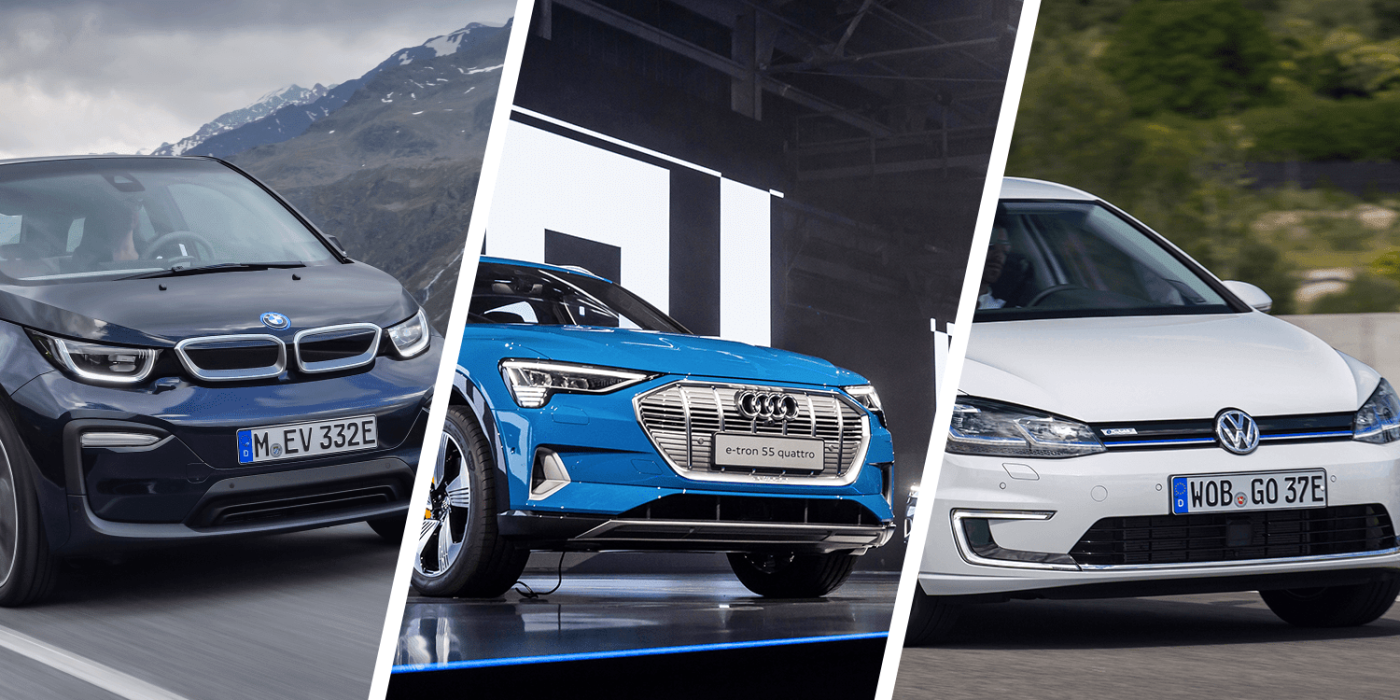EV subsidy increase in Germany green lit by EU
Brussels has given the green light for an increase in the EV subsidy scheme, the Environmental Bonus in Germany. According to the Federal Ministry for Economic Affairs and Energy, the European Commission today announced that it has no objections to greater financial support for electric vehicles in Germany.
The adjusted subsidy guideline will be published in the publication for Federal German government notifications, the Bundesanzeiger, in February and thus become effective. The new subsidy rates are to apply retroactively to all vehicles registered after 4 November 2019, according to the Ministry for Economic Affairs.
The date was set retroactively for 4 November last year because this was the date that a car summit took place in the German Chancellery when politicians and companies generally agreed to increase the subsidy rates and extend the subsidy measure. Later in November, the German cabinet had also officially initiated the change.
Among other things, the decision was made to increase the existing environmental bonus for purely electric cars with a netlist price of fewer than 40,000 euros from 4,000 to 6,000 euros, while 5,000 euros will still be subsidised with a netlist price of up to 65,000 euros. Plug-in hybrids will also continue to be subsidised, with the rate rising from 3,000 to 4,500 euros up to a netlist price of 40,000 euros. The only small change compared to the press release after the car summit: The subsidy for PHEVs with a netlist price between 40,000 and 65,000 euros will only increase to 3,750 euros instead of the announced 4,000 euros. This extension and the increase have been approved in principle in today’s announcement, as communicated in the most recent press release.
As before, the federal government and car manufacturers will share the subsidy equally. The federal government is making 2.09 billion euros available for the extended subsidy – the environmental bonus will be paid until the end of 2025 or until the budget is exhausted. In November, the cabinet also decided on a purchase bonus for young used cars, which are to receive an environmental bonus simply and unbureaucratically in the event of a “second sale”. The ministry is still not giving further details about this scheme – such as the amount of the used car subsidy.
According to the Minister for Economic Affairs, Peter Altmaier, the new funding guidelines will come into force “soon”. Altmaier iterated: “I am pleased that the European Commission has today given the green light for adjusting the environmental bonus for electric vehicles.” He insisted, “This is a good signal, as the new subsidy can now be launched shortly.”
The approval now granted from Brussels under state aid law was preceded by a political kerfuffle. For some time now, it has been said that Germany is virtually only waiting for the approval of the EU Commission. At the beginning of January, the Federal Office of Economics and Export Control (BAFA), which is responsible for the Environmental Bonus, announced via Twitter that the EU Commission still had to examine the new regulation in terms of state aid law. “The @BMWi_Bund is optimistic that the EU Commission will approve the eco-rebate quickly,” the authority continued. It was thus suggested that the ball is in Brussels’ court.
However, as reported by the German weekly newspaper Die Zeit, the EU Commission had not been able to even begin the review because important documents from Germany had not yet been submitted. “At present, this regulation has not been notified by Germany and is therefore not being assessed by the Commission services,” a spokesperson for the EU competition authority told the weekly newspaper in mid-January. In December, the Federal Ministry for Economic Affairs and Energy (BMWi) had already informed the German news site golem.de that the EU Commission was already examining the matter under state aid law.
The delay had apparently caused some customers in the retail sector to hold back with their purchase decision – after all, this makes an individual difference of 2,000 euros more subsidy for low-priced electric cars. For this reason, some importers such as Renault, Hyundai, Kia and Nissan had announced that they would grant an additional 2,000 euros in discounts until the new regulation came into force.
bmwi.de (German)
With reporting by Sebastian Schaal, Germany





0 Comments